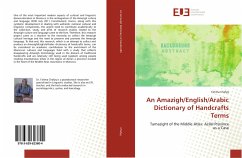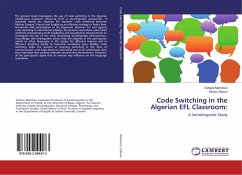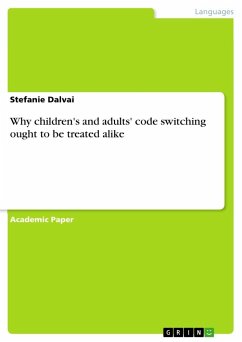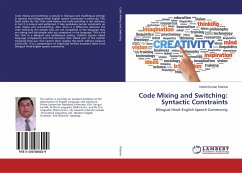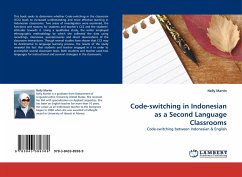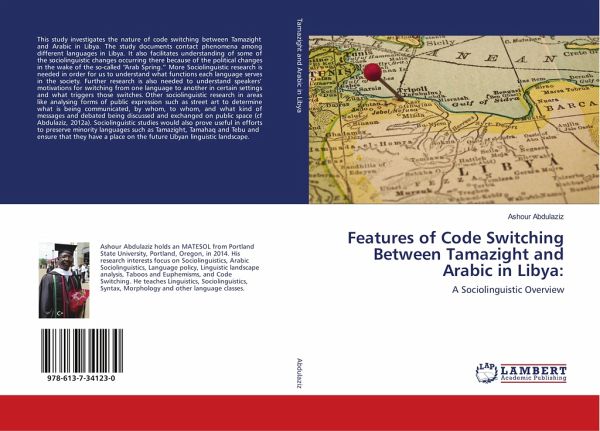
Features of Code Switching Between Tamazight and Arabic in Libya:
A Sociolinguistic Overview
Versandkostenfrei!
Versandfertig in 6-10 Tagen
43,99 €
inkl. MwSt.

PAYBACK Punkte
22 °P sammeln!
This study investigates the nature of code switching between Tamazight and Arabic in Libya. The study documents contact phenomena among different languages in Libya. It also facilitates understanding of some of the sociolinguistic changes occurring there because of the political changes in the wake of the so-called "Arab Spring." More Sociolinguistic research is needed in order for us to understand what functions each language serves in the society. Further research is also needed to understand speakers' motivations for switching from one language to another in certain settings and what trigge...
This study investigates the nature of code switching between Tamazight and Arabic in Libya. The study documents contact phenomena among different languages in Libya. It also facilitates understanding of some of the sociolinguistic changes occurring there because of the political changes in the wake of the so-called "Arab Spring." More Sociolinguistic research is needed in order for us to understand what functions each language serves in the society. Further research is also needed to understand speakers' motivations for switching from one language to another in certain settings and what triggers those switches. Other sociolinguistic research in areas like analysing forms of public expression such as street art to determine what is being communicated, by whom, to whom, and what kind of messages and debated being discussed and exchanged on public space (cf Abdulaziz, 2012a). Sociolinguistic studies would also prove useful in efforts to preserve minority languages such as Tamazight,Tamahaq and Tebu and ensure that they have a place on the future Libyan linguistic landscape.




